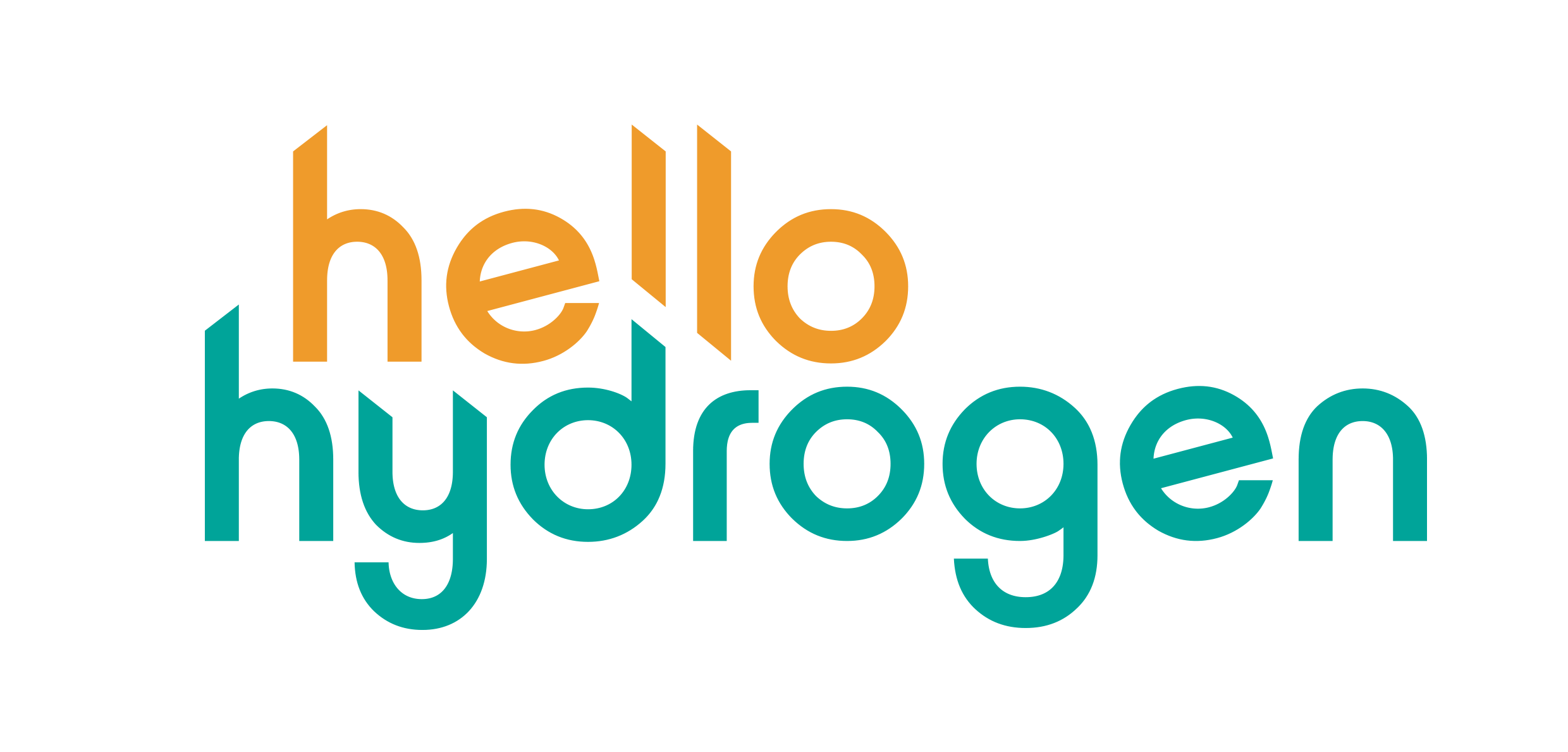The future of home heating
Hydrogen is the gas that will play an essential part in Britain’s future energy supply, providing locally produced, low-carbon heat and power to millions of homes.
The future of home heating
Hydrogen is the gas that will play an essential part in Britain’s future energy supply, providing locally produced, low-carbon heat and power to millions of homes.
Why are we talking about hydrogen gas?
Why Hydrogen?
Hydrogen is set to play a vital role in the way we heat our homes in the future, eventually replacing the natural gas we currently use as we look for long-term environmentally-friendly ways to save the planet and keep bills down.
The problem is – not enough people know about the benefits hydrogen can bring or the work already taking place to start the change.
Hydrogen can be produced in the UK and supplied through the same gas pipes already in our streets and going into our homes. Hydrogen boilers and cookers that work just as natural gas ones do today have already been developed.
The first hydrogen homes and villages are being trialled to find out how easy it will be to replace your current boiler and appliances to hydrogen-ready ones. This switch will help create tens of thousands of jobs in the UK, reduce greenhouse gases and end our reliance on fossil fuels from overseas.
But why now?
Large-scale changes to things we’re all used to take time – just ask the electric car makers. That’s why we want to make sure the public know about the hydrogen future now. This means we can plan ahead and start the investment needed today to make hydrogen convenient and affordable.
The Government will make a decision in 2026 on what Britain’s new heating policy should be and we think households should feel part of that conversation by knowing hydrogen could be one option available to them.
The cost-of-living crisis has shown how important a long-term energy plan is, including a move away from overseas fossil fuels. That’s why we need to start talking about securing home-grown low carbon energy sooner rather than later to reduce our reliance on imported natural gas but only if we start the conversation now.
Why are we talking about hydrogen gas?
Why Hydrogen?
Hydrogen is set to play a vital role in the way we heat our homes in the future, eventually replacing the natural gas we currently use as we look for long-term environmentally-friendly ways to save the planet and keep bills down.
The problem is – not enough people know about the benefits hydrogen can bring or the work already taking place to start the change.
Hydrogen can be produced in the UK and supplied through the same gas pipes already in our streets and going into our homes. Hydrogen boilers and cookers that work just as natural gas ones do today have already been developed.
The first hydrogen homes and villages are being trialled to find out how easy it will be to replace your current boiler and appliances to hydrogen-ready ones. This switch will help create tens of thousands of jobs in the UK, reduce greenhouse gases and end our reliance on fossil fuels from overseas.
But why now?
Large-scale changes to things we’re all used to take time – just ask the electric car makers. That’s why we want to make sure the public know about the hydrogen future now. This means we can plan ahead and start the investment needed today to make hydrogen convenient and affordable.
The Government will make a decision in 2026 on what Britain’s new heating policy should be and we think households should feel part of that conversation by knowing hydrogen could be one option available to them.
The cost-of-living crisis has shown how important a long-term energy plan is, including a move away from overseas fossil fuels. That’s why we need to start talking about securing home-grown low carbon energy sooner rather than later to reduce our reliance on imported natural gas but only if we start the conversation now.
Your questions answered
Not just yet – unless you are lucky enough to live in one of the proposed hydrogen neighbourhoods and villages which will be the first places to use hydrogen.
With 22 million homes using natural gas for heating and hot water in the UK, not to mention the millions of gas hobs used to cook with, it will take some time for everyone to have hydrogen. That’s why we are starting the conversation today.
We are confident the switch to hydrogen can work and the UK has history when it comes to this. In the 1970s the country successfully moved from Town Gas to Natural Gas to heat our homes and we think hydrogen is the next viable option for a greener future with minimal fuss.
The last natural gas shift took ten years to achieve and with more villages and even towns looking to use hydrogen we hope you will be able to use hydrogen soon too. The existing pipes can pump the new gas, the hydrogen boilers are in development, we just need the green light from Government to make it happen.
Yes, new boilers will be needed for homes to use 100% hydrogen. The benefit of a hydrogen-ready boiler is, it will fit in the same spot as your old one and manufacturers have committed to ensuring they will be the same price as a traditional boiler.
You also won’t need to upgrade your boiler until it runs to the end of its natural life. Think of it like HD-Ready TVs that were introduced before the rollout of High Definition TV channels – they worked with the old and new technologies seamlessly and the speed of the switchover was done at a gradual pace region by region.
Manufacturers are already making and testing hydrogen-ready boilers, which can be easily converted to use 100% hydrogen in the future. These are expected to be ready for sale in large volumes from 2026. Boiler makers have said they will need at least three years to develop and produce the hydrogen-ready boilers at scale to keep prices low.
The Government wants to see ten gigawatts of hydrogen production capacity in operation by 2030. On its own, that’s enough to heat more than two million homes.
We expect industrial users like factories and power stations to receive hydrogen supplies first, followed by homes getting at first a blend of hydrogen and natural gas.
The gas networks then plan to extend hydrogen supplies to residential areas nearby. and at the same time start the conversion of the national grid gas system that runs the length of the country connecting up these hydrogen production sites.
We don’t know just yet who will get hydrogen first but, working with the Government, we expect to be able to produce a roadmap in the coming years.
Your questions answered
Not just yet – unless you are lucky enough to live in one of the proposed hydrogen neighbourhoods and villages which will be the first places to use hydrogen.
With 22 million homes using natural gas for heating and hot water in the UK, not to mention the millions of gas hobs used to cook with, it will take some time for everyone to have hydrogen. That’s why we are starting the conversation today.
We are confident the switch to hydrogen can work and the UK has history when it comes to this. In the 1970s the country successfully moved from Town Gas to Natural Gas to heat our homes and we think hydrogen is the next viable option for a greener future with minimal fuss.
The last natural gas shift took ten years to achieve and with more villages and even towns looking to use hydrogen we hope you will be able to use hydrogen soon too. The existing pipes can pump the new gas, the hydrogen boilers are in development, we just need the green light from Government to make it happen.
Yes, new boilers will be needed for homes to use 100% hydrogen. The benefit of a hydrogen-ready boiler is, it will fit in the same spot as your old one and manufacturers have committed to ensuring they will be the same price as a traditional boiler.
You also won’t need to upgrade your boiler until it runs to the end of its natural life. Think of it like HD-Ready TVs that were introduced before the rollout of High Definition TV channels – they worked with the old and new technologies seamlessly and the speed of the switchover was done at a gradual pace region by region.
Manufacturers are already making and testing hydrogen-ready boilers, which can be easily converted to use 100% hydrogen in the future. These are expected to be ready for sale in large volumes from 2026. Boiler makers have said they will need at least three years to develop and produce the hydrogen-ready boilers at scale to keep prices low.
The Government wants to see ten gigawatts of hydrogen production capacity in operation by 2030. On its own, that’s enough to heat more than two million homes.
We expect industrial users like factories and power stations to receive hydrogen supplies first, followed by homes getting at first a blend of hydrogen and natural gas.
The gas networks then plan to extend hydrogen supplies to residential areas nearby. and at the same time start the conversion of the national grid gas system that runs the length of the country connecting up these hydrogen production sites.
We don’t know just yet who will get hydrogen first but, working with the Government, we expect to be able to produce a roadmap in the coming years.
Who we are
We are a group of the UK’s biggest gas networks, boiler manufacturers and energy suppliers who have come together to raise awareness of the exciting potential for hydrogen heating homes across the country.
Media
We want to heat up the energy debate and explain why hydrogen can play an integral role for a green future. Find out more and get in touch to speak to our experts.
Who we are
We are a group of the UK’s biggest gas networks, boiler manufacturers and energy suppliers who have come together to raise awareness of the exciting potential for hydrogen heating homes across the country.
Media
We want to heat up the energy debate and explain why hydrogen can play an integral role for a green future. Find out more and get in touch to speak to our experts.



